The Disease That Robs Us of Ourselves
To all who are impacted by Alzheimer's Disease, there is help and hope.

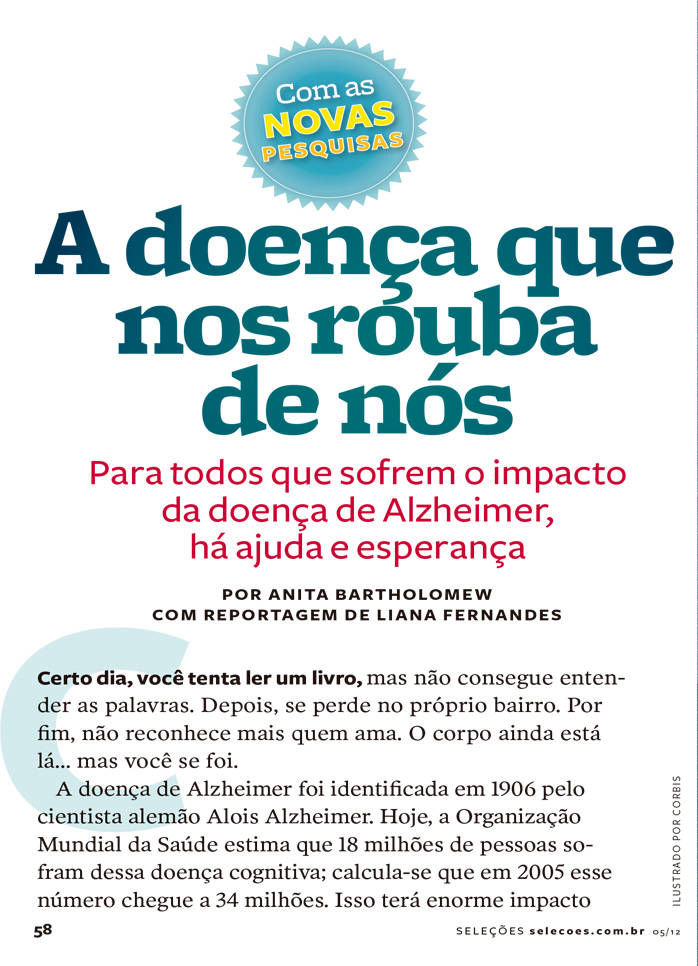
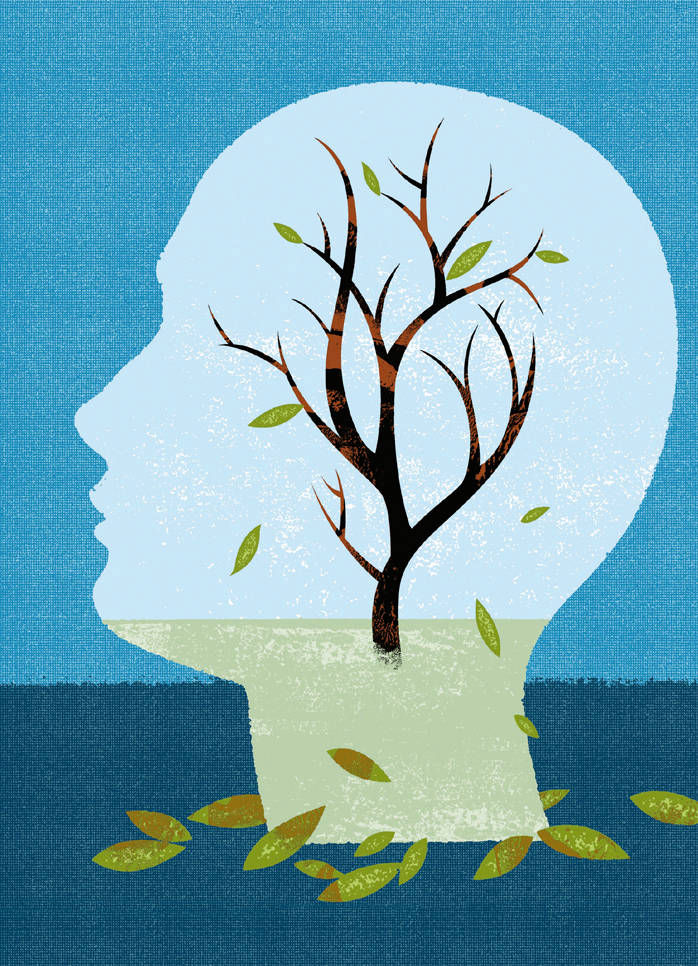
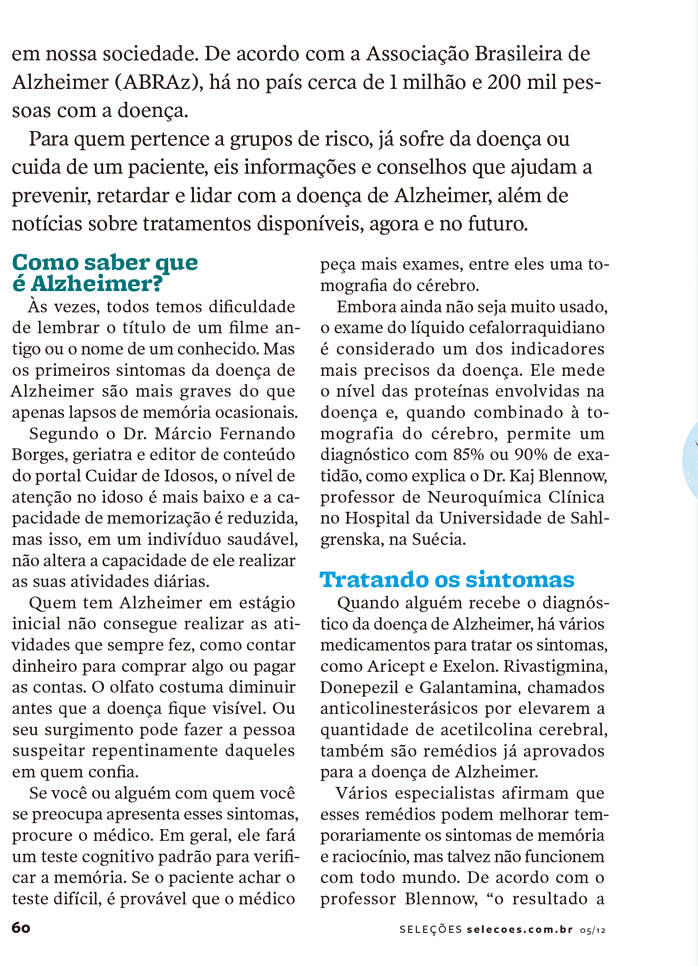
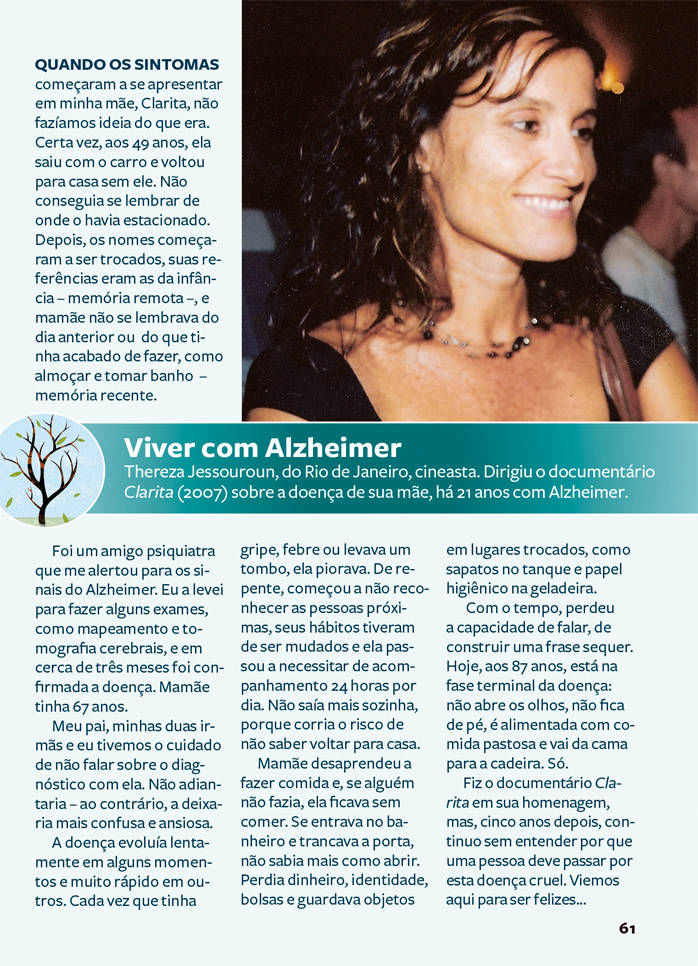
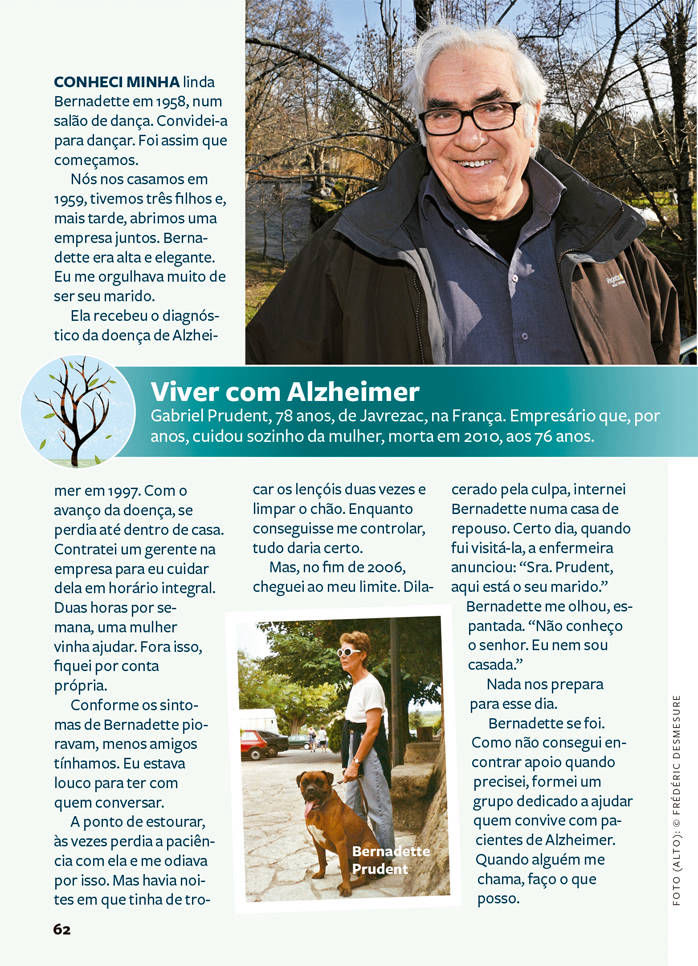
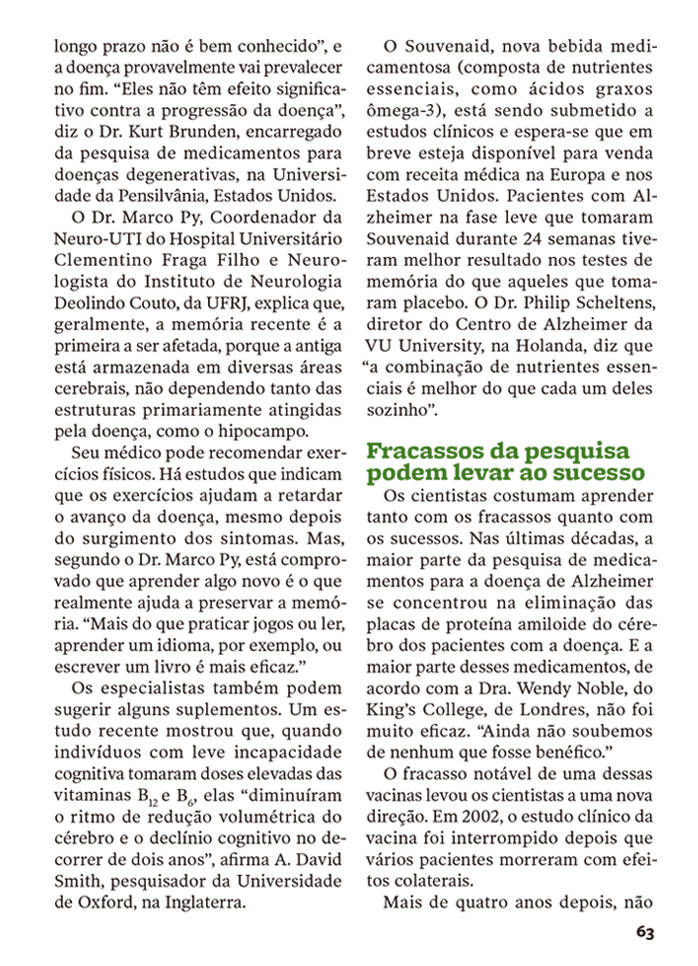
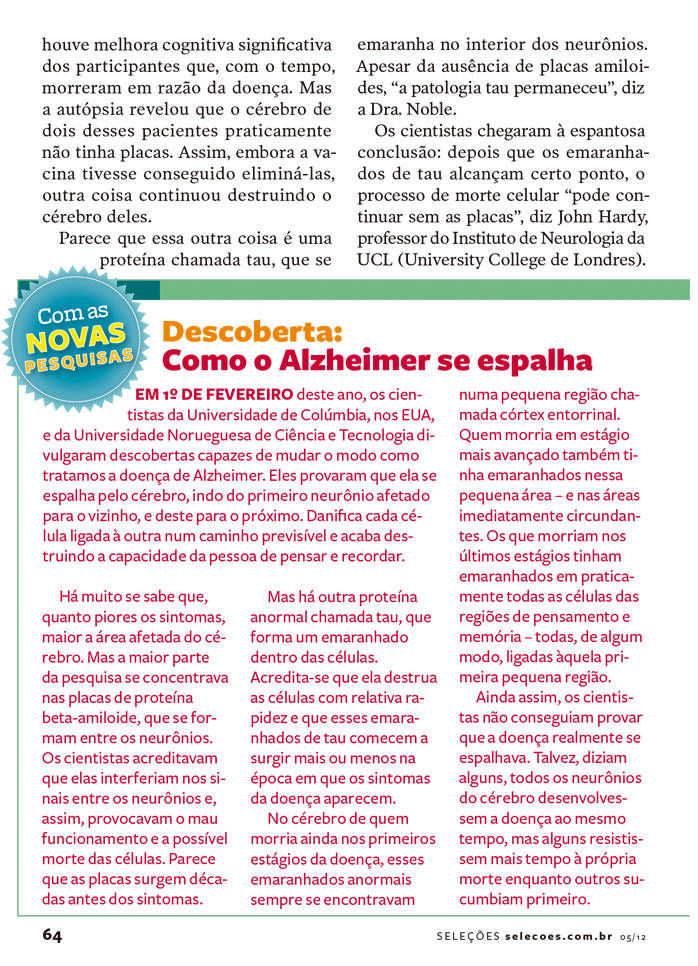
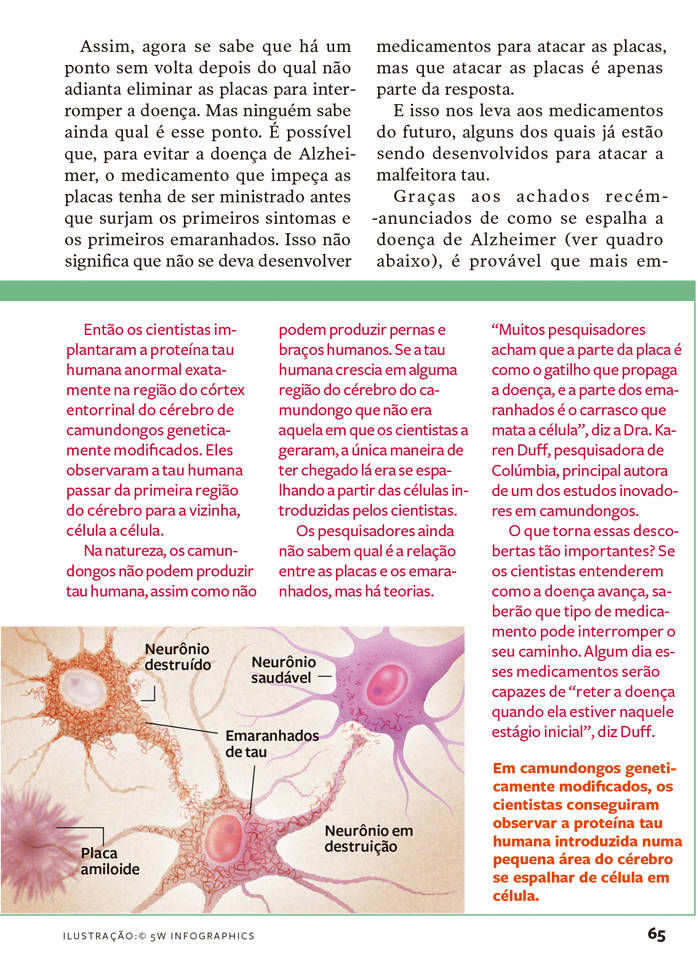
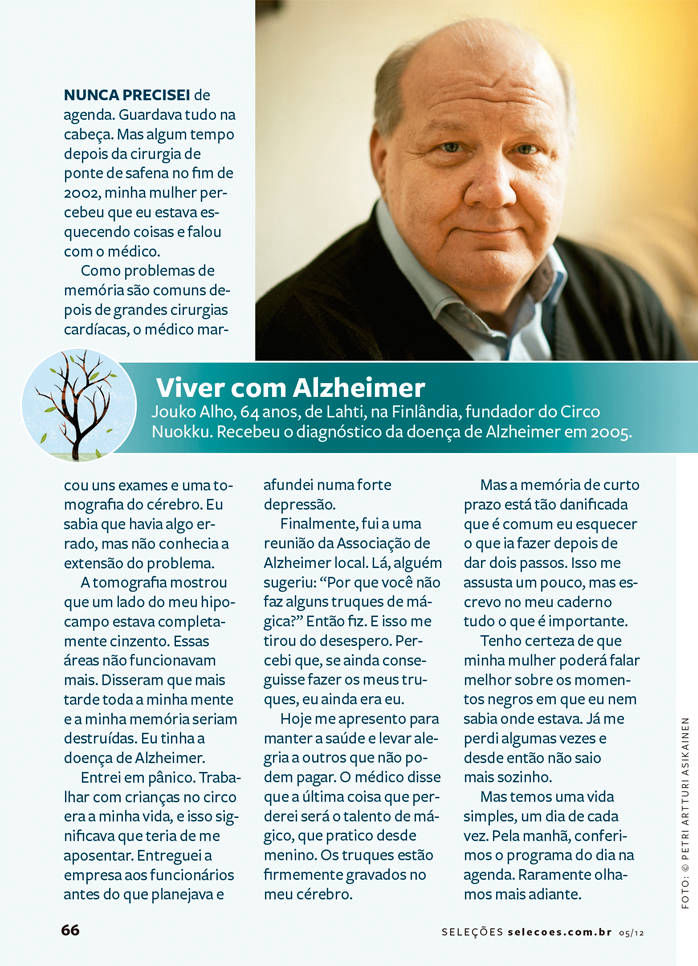
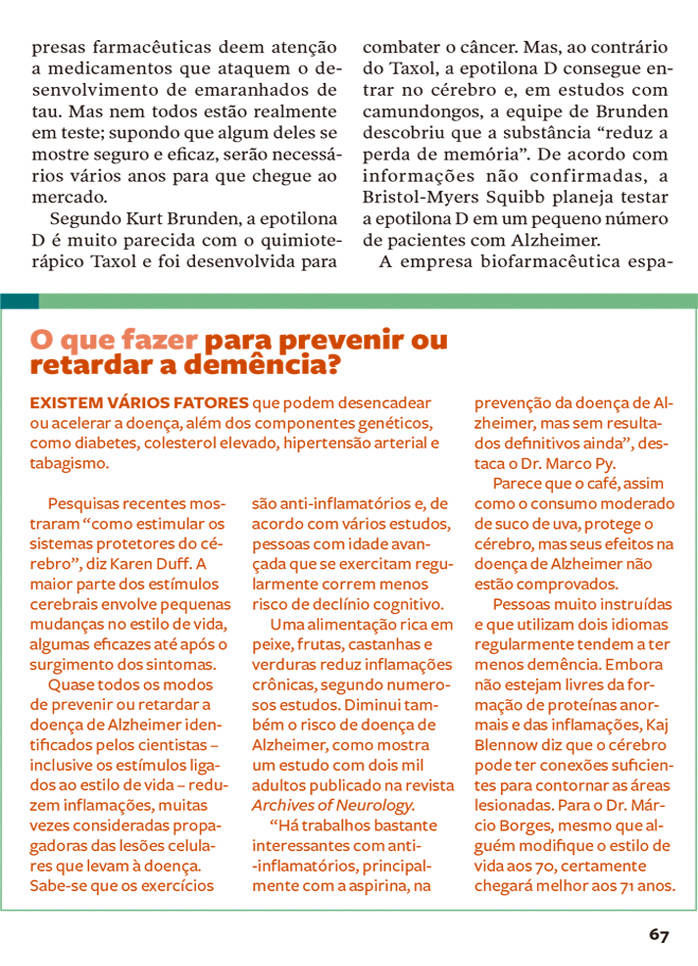
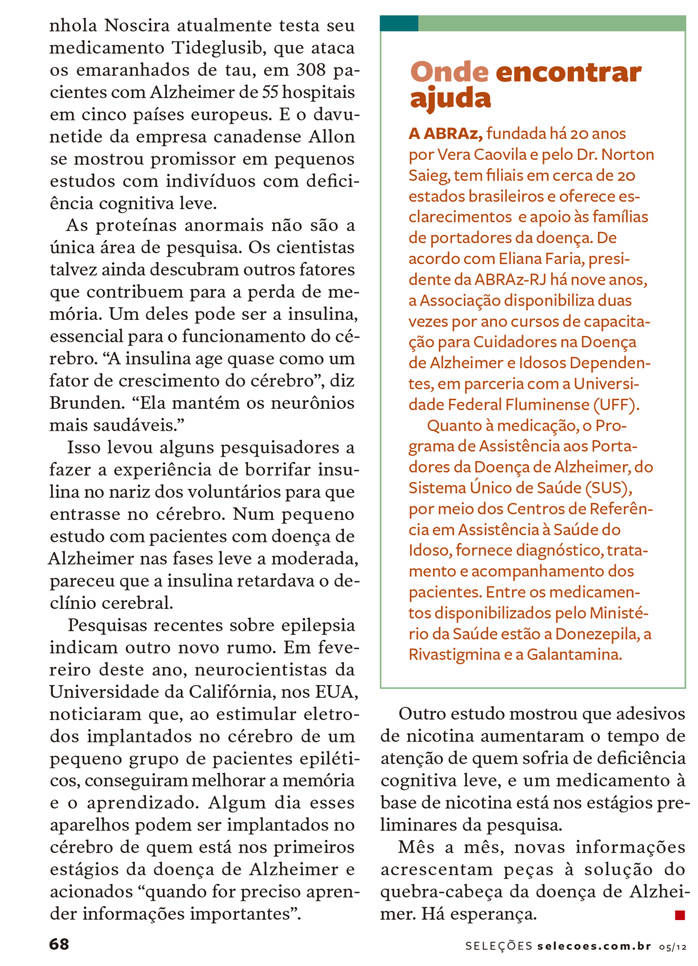
By Anita Bartholomew
Article adapted by Liana Fernandes
(Localisations in bold, plus box Living with Alzheimer)
One day, you try to read a book, but can’t understand the words. Later, you get lost in your own neighborhood. Eventually, you won’t recognise those you love. Your body is still there… but you’re gone.
Alzheimer’s Disease was first identified in 1906 by German scientist Alois Alzheimer. Today, the World Health Organization estimates some 18 million people suffer from the cognitive disease; this number is expected to rise to 34 million by 2025. It will have a huge impact on our society.
According to the Brazilian Alzheimer’s Association (ABRAz), there are about 1,200,000 people with the disease in the country.
Anyone can struggle, at times, to remember the title of an old movie, or the name of an acquaintance, or why they went to the fridge. But the first symptoms of Alzheimer’s Disease are more dramatic than occasional memory lapses.
Dr. Márcio Fernando Borges, Geriatrician and Content Editor of the Caring for the Elderly portal, the level of attention in the elderly is lower and the memory capacity is reduced, but this, in a healthy individual, does not change the ability to carry out their daily activities.
“Mom was always forgetting silly things, but it was around October 2003 that she had the most obvious symptoms of Alzheimer’s. The doctor requested some specific tests, such as tests of general knowledge and reading. She showed so much difficulty that she couldn’t answer the questions or write sentences.”, says Sonia Maria R. L. Borba, 58 years old, retired by Eletrobras Furnas and who took the Alzheimer’s caregiver course at Fundação Real Grandeza, to provide assistance to her mother, Margarida (87), with the disease for 10 years.
People with incipient Alzheimer’s are unable to do what they’ve always done, like paying bills or counting out money for a purchase. A study published last year [2011] in the Journal of the American Medical Association calls such difficulties “the canary in the coal mine of impending dementia.” The sense of smell often diminishes before the disease is apparent. Or its onset can make people suddenly suspicious of those they have always trusted.
(…)
If Alzheimer’s disease is diagnosed, there are several drugs that treat the symptoms, including Aricept, Exelon, and Memantina, which original commercial name in Brazil is Eranz. Rivastigmine, Donepezil and Galantamine, called anticholinesterase drugs because they increase the amount of acetylcholine in the brain, are also already approved drugs for Alzheimer’s disease.
These drugs may improve memory and reasoning symptoms temporarily, say several experts, but they might not work for everyone. According to Professor Blennow, “the long term outcome is not well known” and the disease will probably “catch up” in the end. “They don’t do anything to slow disease progression,” says Kurt Brunden, Ph.D., who is in charge of neurodegenerative disease drug research at the University of Pennsylvania.
Dr. Marco Py, Neuro-ICU Coordinator at the Clementino Fraga Filho University Hospital and Neurologist at the Deolindo Couto Institute of Neurology, at UFRJ, explains that, in general, recent memory is the first to be affected, because the old one is stored in several brain areas, not depending so much on the structures primarily affected by the disease, such as the hippocampus.
Thereza Jessourun, filmmaker, from Rio de Janeiro. She directed the documentary Clarita (2007), about her mother’s illness, who now lives with Alzheimer’s for 21 years.
When the symptoms began to appear in my mom, Clarita, we had no idea of what it was. Once, at age 49, she took her car out and came home without it. She couldn’t remember where she had parked it. Then, the names started to be changed, her references became those of childhood - remote memory - and mom didn’t remember things she had done the day before or that she had just done, like having lunch, showering and drinking water - recent memory.
It was a Psychiatrist friend who had alerted me to the signs of Alzheimer's. I took her to do some tests, like brain mapping and brain tomography, and in about three months the disease was confirmed. She was 67 years old.
My dad, my two sisters and me were careful not to talk about the diagnosis to her. It wouldn’t help, on the contrary, it would make her more confused and anxious.
The disease progressed slowly at times and very fast at others. When she had a simple fever or fell to the floor, she got worse. Suddenly, she started not recognising people close to her anymore, her habits had to be changed and she started to need 24-hour monitoring.
She could no longer go out alone, for the risk of not knowing how to get back home.
Mom could not remember anymore how to prepare her own food, and if someone didn’t give it to her, she wouldn’t eat. If she went into the bathroom and locked the door, she no longer knew how to open it. She used to wear one dress over the other or to forget to wear the skirt. She used to take everything out of the closets and put it on the bed for no reason. She used to lose money, ID, bags and keep things in the wrong places, like shoes in the sink and toilet paper in the fridge.
Over time, she lost the ability to speak. She had visions and picked up things on the floor that only she could see. Today, at 87, she is terminal: no longer opens her eyes, does not stand, is fed with soft food and goes from bed to chair. And that’s all.
I produced the documentary Clarita in her honor, but its been five years since I made the film and I still don’t understand why someone should go through such a cruel disease. Life is ephemeral. We are here to be happy...
There are several factors that can trigger or accelerate the disease, in addition to genetic components, such as diabetes, high cholesterol, high blood pressure and smoking.
Researches have shown “how to stimulate the brain’s own protective systems,” says Karen Duff of Columbia. Most brain stimulation involves minor lifestyle changes, some of which are effective even after symptoms appear. Most of these ways of preventing or delaying Alzheimer’s disease that scientists have identified — including lifestyle brain stimulation.
(…)
“There are some very interesting works with non-steroidal anti-inflammatory drugs, such as aspirin. It appears that people who take this drug often are less likely to suffer from Alzheimer’s.” highlights Dr. Marco Py. “And seems like that coffee, as well as moderate consumption of grape juice, protect the brain, but their effects on Alzheimer’s disease are not proven. The main effect would be to raise HDL-cholesterol (the so-called good cholesterol), which prevents vascular diseases such as myocardial infarction and stroke. But its effects on Alzheimer’s disease are not proven yet.”
(…)
ABRAz, founded 20 years ago by Vera Caovilla and Dr. Norton Sayeg, has branches in around 20 Brazilian states and offers information and support to families of people with the disease. According to Eliana Faria, president of ABRAz‐RJ for nine years, the Association offers training courses twice a year for Caregivers in Alzheimer’s Disease and Dependent Elderly People, in partnership with the Fluminense Federal University (UFF).
Regarding medication, the Assistance Program for People with Alzheimer’s Disease, of the Unified Health System (SUS), through the Reference Centers for Health Care for the Elderly, provides diagnosis, treatment and monitoring of patients. Among the medicines made available by the Ministry of Health are Donezepila, Rivastigmine and Galantamine.